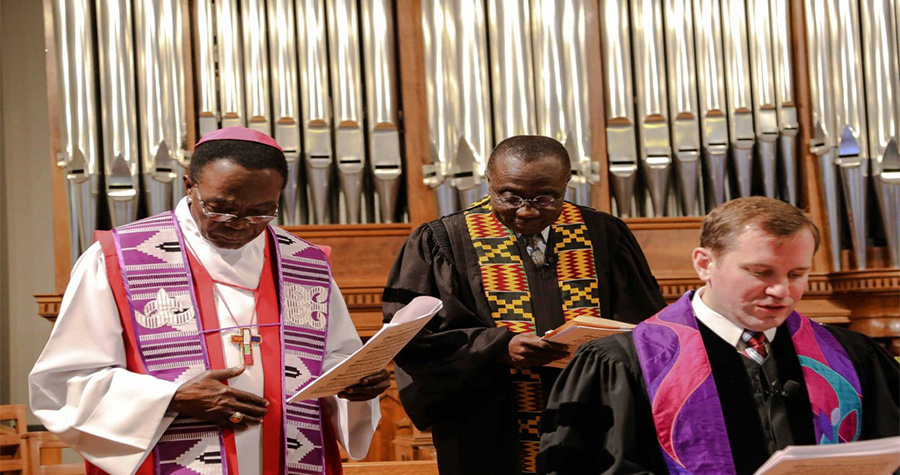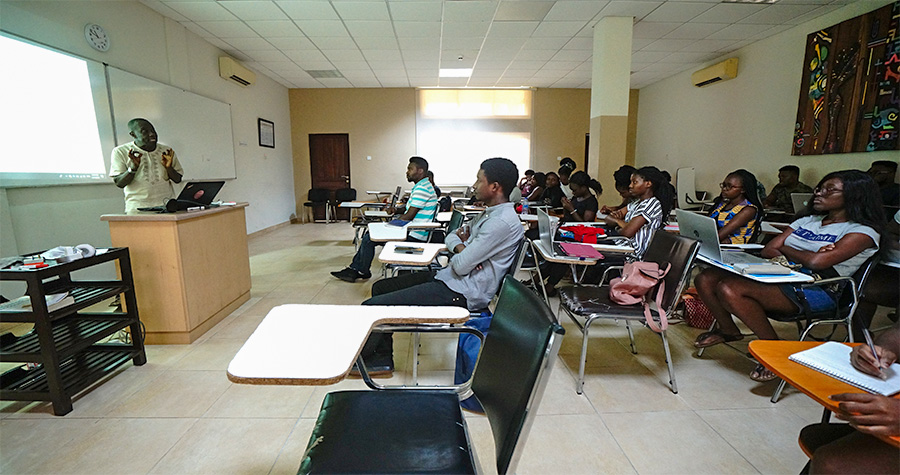 November 19, 2018
November 19, 2018
Growing up, Pashington spent most of his early years in boarding school, attending Aburi Boys’ School for his elementary education and later, Presbyterian Boys’ Secondary School for his middle school and senior high school education.
“My father was in the military and got transferred very often,” he shared. “So both my parents felt it would be best to reduce interruptions to my academic growth by sending me off to boarding school, and at the time, Presec had garnered quite the academic reputation. So that’s where I went.”
It was during his time there that Pashington discovered his desire to pursue religious education. “I felt inspired by our school chaplain’s outlook on life. To see a religious leader combining the teaching of English literature with living an exemplary life, I saw in him, qualities that appealed to me and I wanted to become like him someday.”

Now an Africana Studies scholar for the past twenty-four years, Pashington specializes in African Diaspora studies, the anthropology of religion in continental Africa & New World Afro-Atlantic areas, cultural communication focusing on black film representations. Pashington’s research covers topics of race/ethnicity, class, politics, and gender and he aims to clarify how Africans on the continent and in the Diaspora form their identities and experiences within local, national and transnational contexts. His current research spans the topic of Africans who have been converting to traditionally non-converting faiths such as Judaism and Hinduism.
“For a long time, we have not been deliberate in teaching our people about ourselves. So we’ve been compelled to look at ourselves through the eyes of someone else and by so doing, we become alienated from our own identities, cultures, and histories. It took me leaving Africa to realize the importance of reconnecting with my cultural roots and the angle it contributing to academia. It took me looking at what I felt had been silenced or been missed or erased to say I’m going to re-engage my own culture, and refocus on African perspective, philosophy, and thought patterns. So if I could become part of the people to awaken that among Ghanaians, Africans, there’s something, an untold or unfinished story about Ghanaians or Africans, I want to be part of that.”
After thirty-five years living and teaching in the diaspora, thirty-seven publications and twenty-nine years serving as a priest at the Wellesley Hills Congregational church in Massachusetts, Pashington decided to come back to Ghana and teach Religion in Africa and African Literature at Ashesi.
“I would wake up and go to conferences, give talks and teach but it always dawned on me that even though I have been privileged to travel to many parts of the world, and helped empower other people to stand on their own, I had not done that in my own country where I was born and raised.”

“I see myself as a birth attendant because each student already has some knowledge about culture and religion. So my role is to assist them to shape those ideas and mold them into responsible, accountable citizens of Ghana and the world. Essentially, in my class, students learn to appreciate diversity within religion and culture. I guide them to think critically about how their decisions impact the larger society. They learn about the notion of servant leadership and engaging compassionately with others; to do things not only as a result of one’s passion about a cause but by considering the other person’s well-being, intelligence, fears, hopes, and aspirations.”
Share this story
